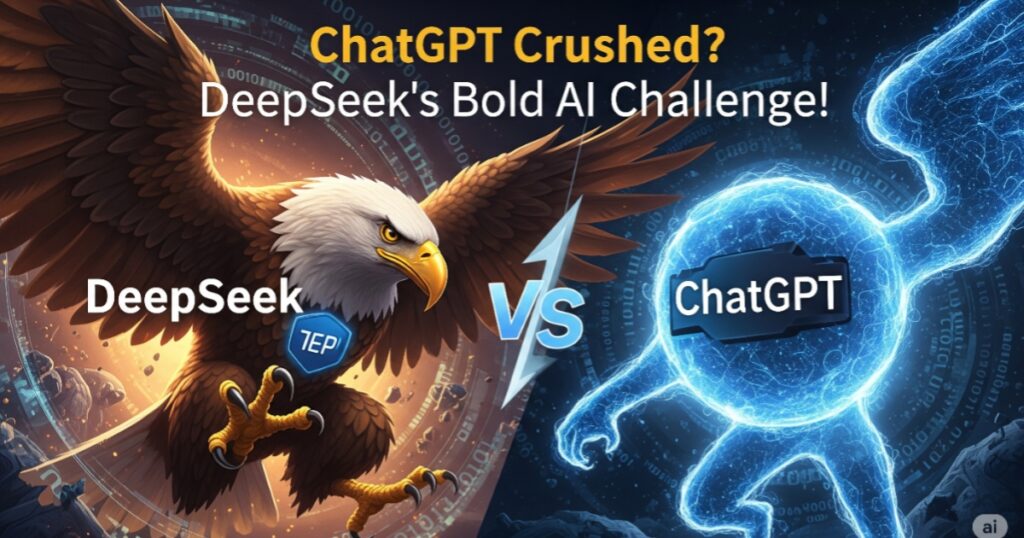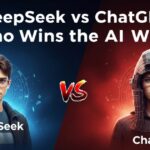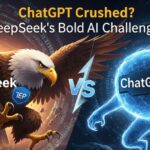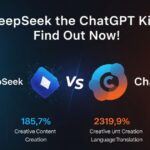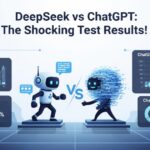A digital duel is unfolding in the world of artificial intelligence—and it’s got everyone from tech experts to everyday users buzzing.
The high-stakes rivalry between two of the most powerful chatbot models on the market—DeepSeek and ChatGPT—is quickly becoming the biggest conversation in AI.
The results of this face-off are shaking up the industry and forcing users to re-evaluate what they really need from a chatbot.
For years, ChatGPT, developed by OpenAI, has been the leading name in conversational AI. Its ability to hold human-like conversations, generate content, and assist with coding, writing, and even image creation has made it a favorite across countless industries. But now, DeepSeek, a fast-rising open-source challenger, is breaking into the mainstream—and doing so with surprising momentum.
The ongoing DeepSeek vs ChatGPT comparison has become one of the most discussed topics in AI circles, especially after a series of independent benchmark tests revealed that DeepSeek holds its own—and even outperforms—in certain key areas.
While ChatGPT remains ahead in creative writing and conversational tone, DeepSeek is gaining praise for its superior data precision, multilingual understanding, and transparent citation capabilities.
“This isn’t just another AI tool—it’s a real contender,” said Dr. Nina Wallace, a data scientist and AI ethics consultant. “When we talk about DeepSeek vs ChatGPT, we’re really talking about two different visions of AI: one polished and consumer-ready, the other raw, open, and highly customizable.”
The impact of this rivalry extends far beyond the tech elite. Small businesses, educators, content creators, and developers are all weighing their options. ChatGPT is still beloved for its easy interface and powerful integrations—especially when combined with tools like Microsoft Copilot and DALL·E. But DeepSeek is catching the attention of users who value accuracy, openness, and control over flashy features.
Google search trends reveal the growing interest, with spikes in queries like “DeepSeek vs ChatGPT review,” “best AI for research,” and “ChatGPT alternative 2025.” It’s clear that users are looking beyond the familiar and exploring how different models can serve their unique needs.
In developer communities, DeepSeek’s open-source foundation is a major talking point. Developers can fine-tune the model, deploy it privately, and even integrate it into proprietary systems—a level of freedom that ChatGPT, as a closed model, doesn’t offer. That flexibility is one reason DeepSeek is gaining traction in sectors like healthcare, law, and academia.
Still, OpenAI isn’t backing down. ChatGPT continues to evolve rapidly, with new features like long-term memory, plugin compatibility, and real-time internet access making it more powerful than ever.
As both platforms push forward, the real winner is the user. Innovation is accelerating, AI tools are improving, and competition is driving higher standards across the board.
This AI face-off has everyone talking, and for good reason. Whether you’re team DeepSeek or team ChatGPT, one thing is certain: the future of AI is smarter, faster, and more competitive than ever before.

